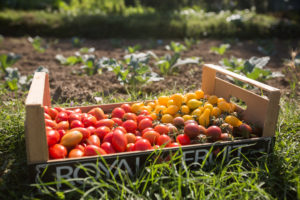Responsible Tourism The 5 Rules of Sustainable Tourism
Tourism generates 10 percent of the world’s GDP, according to the study prepared by Enhanced Integrated Framework…
Tourism generates 10 percent of the world’s GDP, according to the study prepared by Enhanced Integrated Framework (Eif), and can be considered as a key agent of sustainable growth and development, especially for developing countries. We start from this assumption to understand how to implement Sustainable Tourism.
It is essential that the consumer, in the guise of a tourist, be educated to be a sustainable, responsible and conscious traveler.
The United Nations dedicated 2017 precisely to sustainable tourism for development, declining the theme into five thematic areas:
- Inclusive and sustainable economic growth;
- Social inclusiveness, employment and poverty alleviation;
- Resource use efficiency, environmental protection and combating climate change;
- Protection of cultural values, diversity and tradition;
- Mutual understanding, peace and security.
They also outlined the 5 key points to be observed when traveling for tourism purposes. A set of rules, tips and good deeds that can, on the one hand, protect natural, artistic and cultural heritage and, on the other hand, support and develop local realities.
Honor your guests and our common heritage
Know the local customs, traditions and social conditions of your destination before you leave. This is a great way to build understanding of the local community.
Learn to speak a few words in the local language. This can help you connect with the local community and its people in a more meaningful way.
Experience and respect everything that makes an international destination different and unique, from its history, architecture, religion, customs and communication, to its music, art and cuisine.
Always ask permission before taking photographs of other people; their privacy is just as valuable as yours.

Protect the Planet
Reduce environmental impact, be a guardian of natural resources, especially forests and wetlands. Respect wildlife and their natural habitats. Buy local products that are not made from endangered plants or animals. In protected areas, access only those places open to visitors. Reduce water and energy consumption if possible. Leave only a minimal footprint and a good impression of you.
Support the local economy
Buys handicrafts and local products. Respect the livelihoods of vendors and artisans by paying a fair price. Do not buy counterfeit products or items that are prohibited by national authorities and/or International Regulations. Hire local guides with in-depth knowledge of the area.
Be an informed traveler
Take appropriate health and safety precautions before and during travel. You need to know how to access medical care or contact your embassy in case of an emergency. Do thorough research before you commit to volunteering. Choose tourism operators who have projects related to environmental policies and communities.
Be a sustainable traveler toward people
Observe national laws and regulations. Respect human rights and protect children from exploitation. Abusing children is a crime. Refrain from giving money to children but instead support community projects. Take photos instead of taking protected cultural artifacts as mementos of your trip. Provide honest travel reviews on your return and promote your positive experience.
(Source: ADOC website Association for the Defense and Guidance of Consumers https://www.adocnazionale.it )
